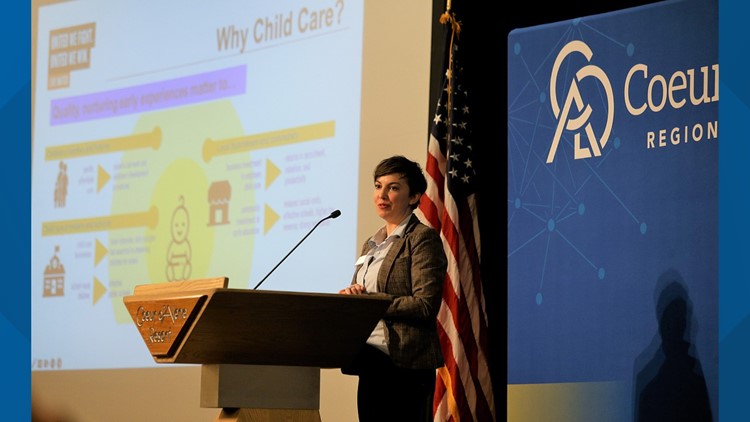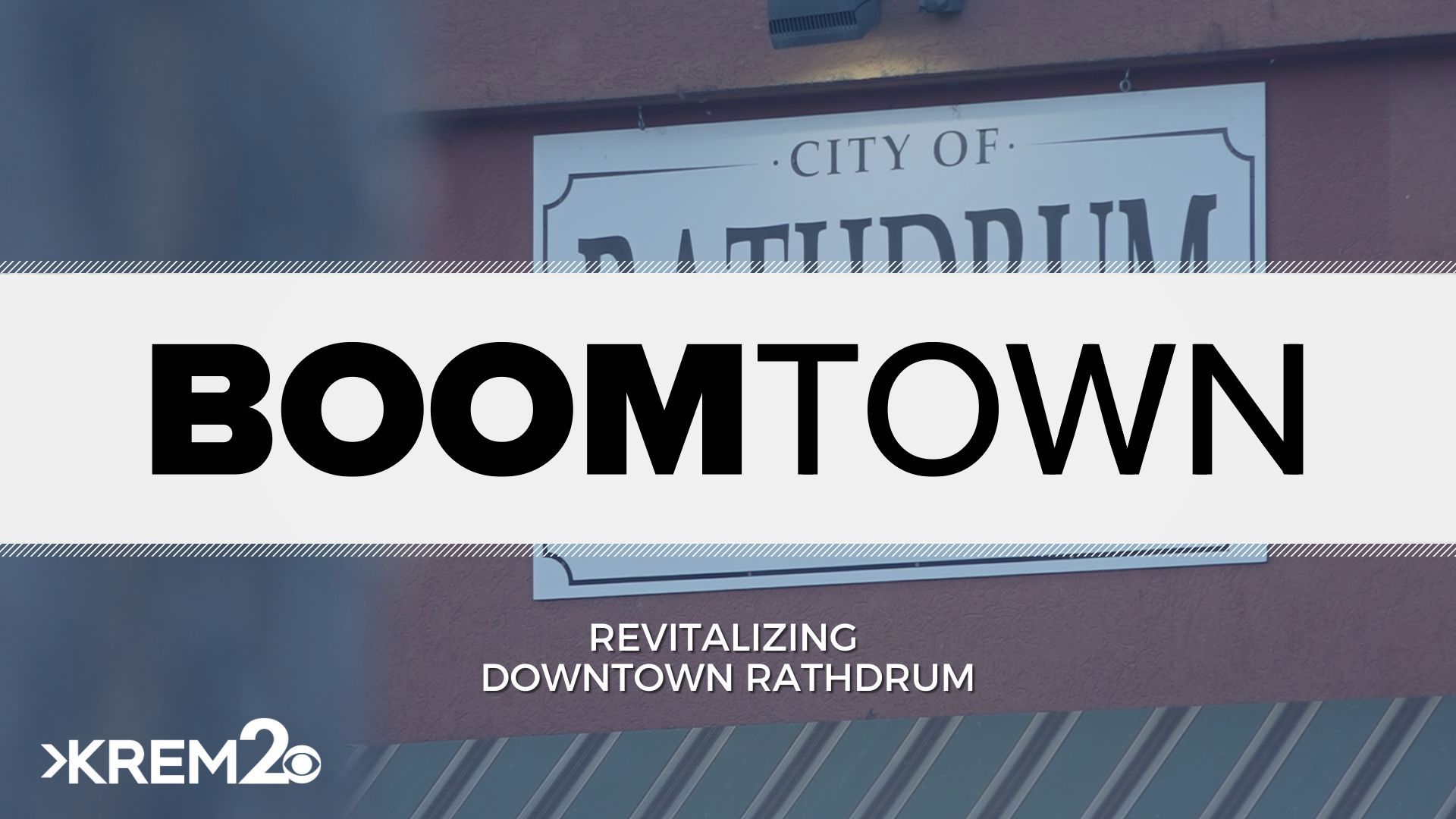COEUR D'ALENE, Idaho — Before inflation began driving up the cost of living two years ago, 44% of the population in Idaho’s Region 1 was struggling financially, as reported by KREM 2 News partner the Coeur d'Alene/Post Falls Press.
United Way of North Idaho Executive Director Mark Tucker said that figure is likely much higher today.
“I would not be surprised if that number is over 50 percent,” he said during the Coeur d’Alene Regional Chamber’s Upbeat Breakfast on Tuesday at The Coeur d’Alene Resort.
The economic challenges faced by many in North Idaho aren’t just paying for housing, food and basic necessities. Child care, even finding it, has become a major obstacle for parents who are also trying to find work.
It has reached a crisis point that affects the entire community, Tucker said.
Child care, for a household with two parents, is estimated at more than $1,017 a month, Tucker said, calling that figure “really low.”
“Going to college is cheaper than child care,” he said to about 100 people at The Coeur d’Alene Resort.
Tucker and Keri Cederquist, community impact director at United Way of North Idaho, outlined how business owners and community leaders can support families through affordable child care and early childhood education initiatives.
They referred often to what is known as the United Way ALICE (Asset Limited, Income Constrained, Employed) Report, which looks at households that earn above the federal poverty level but cannot afford the basic cost of living in their county.
Tucker said access to quality, affordable, child care is essential, in that it allows parents to work as well as playing a key role in a child's early educational development.
The negative aspects of not having child care are many, Tucker said. He cited monetary hardships because one parent must stay home and a lack of social connections.
It’s difficult for blue-collar workers to get by on one income because 78% of jobs in Idaho pay less than $20 an hour.
While the federal poverty level for a family of four in 2019 was $25,750, the average bare-minimum cost of living for a family in Idaho according to the ALICE Household Survival Budget was just over $63,000.
United Way of North Idaho, which found that child care costs exceed affordability for 80% of families, is trying to identify ways the public and private sectors can help find solutions.
In its research, it learned that child care is “not a good business model.” It is expensive, difficult and offers limited financial benefits.
Child care is in demand, but hard to find. About 15 child-care centers in Coeur d'Alene have closed in recent years, with only a handful opening.
According to indeed.com, the average child care worker makes $12.79 a hour. Because it is relatively low pay, there is higher turnover. Indeed posted more than 300 job openings in child care in Idaho on Tuesday.
Those in child care don’t do it for money, Tucker said, but they have a passion for it and know there is a need.
“They get into it because they can’t afford child care themselves so they start a child care center,” he said.
Children in homes with financial instability have greater risks for poor physical health, increased family stress, social isolation and lower academic performance, Cederquist said.
She said they are hearing of more children coming into kindergarten lacking the ability to follow directions or even use a restroom on their own.
“Obviously, there are pretty serious short- and long-term impacts of financial instability on children and families,” Cederquist said.
She said in a survey of parents with children up to 5 years old, 69% are more likely to choose an employer with child care benefits.
For families with multiple children, children with special needs or who work nontraditional hours, finding child care, "can be a nightmare,” Cederquist said.
“A huge factor and differentiator is family friendly workplace policies that make it feasible for families to get back to work,” Cederquist said.
United Way of North Idaho says in order for child care to be sustainable, public and private investments are important.
Cederquist cited the North Idaho Early Learning Collaborative, described as a "group of stakeholders in our community who are stepping up to pool resources to build up child care quality and accessibility for families in Kootenai and Bonner counties."
Strategies include investing in early care and education infrastructure and creating a business alliance for family friend workplaces.
To date, it has provided more than $300,000 in child care scholarships for 130 families in North Idaho. Education stipends for early learning and youth program totaled $490,000.
United Way of North Idaho is meeting with employers to understand their needs and develop solutions that support them and their employees.
Predictable and flexible employee schedules are key. Scholarship funds, tuition subsidies and financial partnerships with local providers are part of the strategy.
"We encourage our business community to join us in this," Cederquist said.
The Coeur d'Alene Press is a KREM 2 News partner. For more from our news partner, click here.



